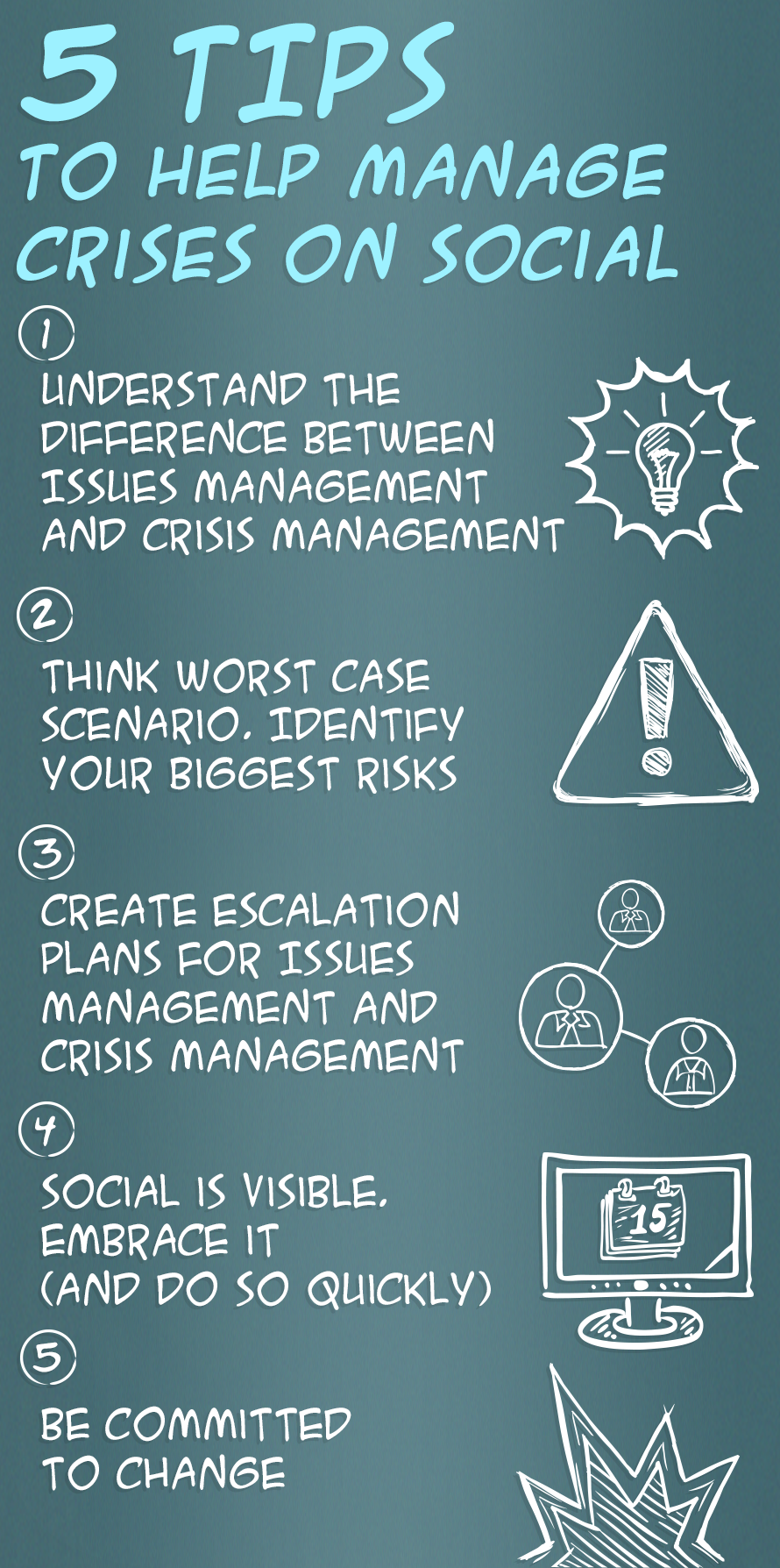June 3, 2015
Before the early noughties launches of Facebook, Twitter et al, news cycles were longer and managing crises was a whole lot easier. Why? Broadly speaking, you only had to worry about the media backlash. Today (as we all know), social has added another layer of complexity. The slightest error can create fodder for the Twitteratti to debate and condemn long before the dailies have gone to print.
So what does this mean for businesses? Here are five tips to aid your planning.
1. Understand the difference between Issues Management and Crisis Management
Have a plan to address common issues and where possible reengineer business processes and operations to eradicate them. Issues (if not addressed) have the propensity to become a crisis. Many brands garner press attention for their lack of visibility when dealing with issues. As negative press goes, this is the easiest to avoid.
2. Think worst case scenario. Identify your biggest risks
Make a list of crises that you hope never take place. We always advise ‘plan for the worst’.
3. Create escalation plans for Issues Management and Crisis Management
Know which job titles and departments to contact when issues occur and when a crisis breaks. In a crisis, time is critical. Brands like Nestle and Eurostar have suffered in the past due to their lack of speed in issuing apologies.
4. Social is visible. Embrace it (and do so quickly)
Avoiding press calls (during a crisis) is ill advised. Not embracing social is the same. Stand tall and face your crisis. Communicating with your audience is key to minimise negative impact. Utilise all available channels with a consistent and joined-up message. Monitor your channels and address FAQs.
5. Be committed to change
Irrespective of the crisis, be committed to effecting the required change needed to prevent reoccurrence. It’s never too early to start repairing damaged opinions.
The British Army champions the 7 Ps – proper planning and preparation prevents piss poor performance. Don’t wait for a crisis to break before you schedule boardroom time to craft a plan of action. Do that, and the Twitterati (and media) will act as judge, jury and executioner. Some of the smartest responses to crises have come through been issuing a swift apology. Accepting and owning the crisis and keeping communities informed of developments is vitally important.
